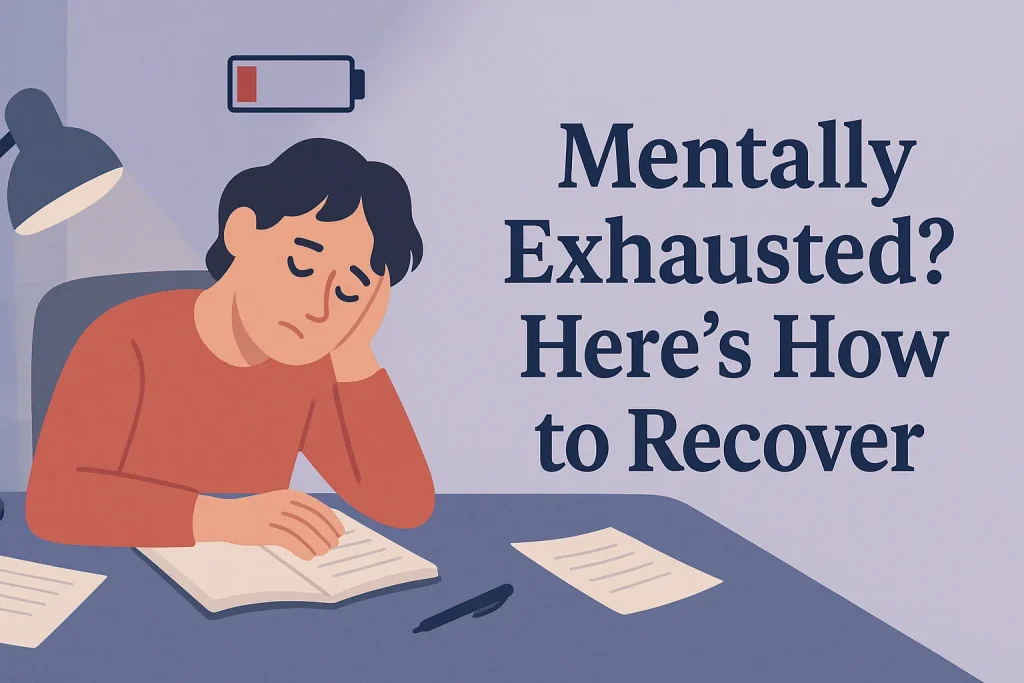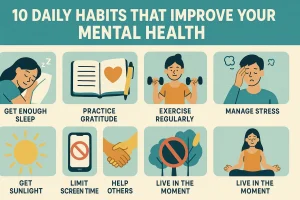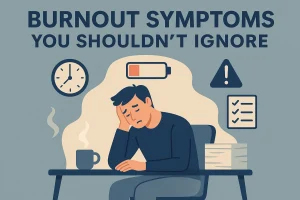Why You’re Feeling Mentally Exhausted (And How to Recover)

You’re not lazy. You’re not weak. You’re probably just mentally exhausted.
Between constant stress, endless to-do lists, and emotional overload, your brain eventually reaches its limit. And when it does, everything feels harder—thinking, focusing, making decisions, or even getting out of bed.
Understanding the causes behind mental fatigue is the first step toward mental exhaustion recovery. Let’s dive into why you feel this way—and exactly how to restore your mental energy.
What Is Mental Exhaustion?
Mental exhaustion is a state of cognitive burnout caused by prolonged stress, overwhelm, or emotional strain.
Common symptoms include:
- Difficulty concentrating
- Low motivation and apathy
- Emotional numbness or irritability
- Feeling drained even after rest
It’s like your brain’s battery is stuck at 2%—and won’t recharge.
Top Causes of Mental Exhaustion
- Chronic stress: Work, money, family, or global uncertainty
- Decision fatigue: Too many choices and responsibilities
- Emotional labor: Constantly managing your or others’ feelings
- Lack of boundaries: Saying yes when you need to say no
- Digital overload: Too much information, not enough processing
Your brain wasn’t designed for nonstop stimulation and pressure. Eventually, it crashes.
How to Recover From Mental Exhaustion
1. Disconnect to Reconnect
Step away from screens and social media—even for just an hour a day. Give your mind space to breathe.
2. Prioritize Real Rest
Sleep is essential—but so is doing nothing without guilt. Schedule downtime that’s truly restorative (not just Netflix binging).
3. Do One Thing at a Time
Multitasking drains your brain. Slow down. Focus on one task fully. Let your brain reset.
4. Journal Your Thoughts
Clear mental clutter by writing down your worries, thoughts, or emotions. Mental fatigue often stems from unprocessed thoughts.
5. Say No Without Explaining
Protect your energy. Every “yes” to something unnecessary is a “no” to your recovery. Set boundaries with clarity and kindness.
6. Move Your Body Gently
Light movement (like walking, yoga, or stretching) helps release tension and improves blood flow to the brain—without taxing your energy.
7. Nourish Your Brain
Stay hydrated. Eat healthy fats (like avocado, nuts, olive oil), greens, and lean proteins. Mental clarity starts with physical health.
When to Seek Help
If your exhaustion lasts more than a few weeks, or affects your ability to function, talk to a mental health professional. Therapy, support groups, or even temporary medication can help.
Remember: You don’t have to figure this out alone.
Final Thoughts
Mental exhaustion recovery doesn’t happen overnight. But every small shift helps. The key is to listen—to your mind, your body, your boundaries.
You are allowed to pause. You are allowed to rest. And most importantly, you are allowed to heal.
🧘 Try this today:
Choose one recovery step from the list above and commit to it for 15 minutes. That’s it. You’re already on your way back to clarity.
Want More Mental Health Reset Tools?
Subscribe to our weekly newsletter for practical tips on energy, stress recovery, and building inner resilience—one gentle habit at a time.




No comments yet. Be the first to comment!